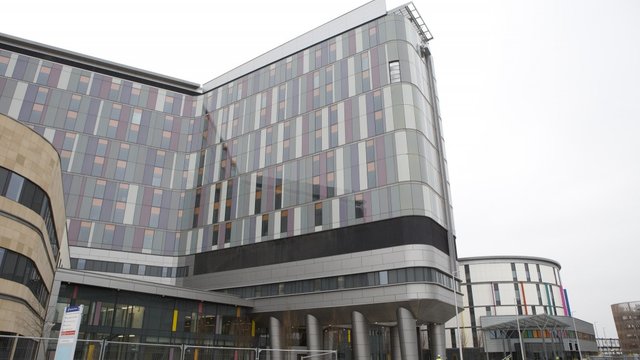On Air Now
The Capital Evening Show with Jimmy Hill 7pm - 10pm
20 March 2018, 12:44

Three children continue to receive treatment for infections which may be linked to bacteria in the water supply at a children's hospital.
The update follows the discovery of bacteria at the Royal Hospital for Children (RHC) in Glasgow on Friday.
A fourth patient has been readmitted to the RHC after displaying symptoms of infection.
Officials said testing and infection control measures have also been extended to four wards at the next-door Queen Elizabeth University Hospital (QEUH).
Experts from Health Protection Scotland, Health Facilities Scotland and Scottish Water have been involved in the investigation.
A spokesman for NHS Greater Glasgow and Clyde said it was continuing to investigate the presence of bacteria in the water supply to some wards in the RHC.
He said: "Three children continue to receive treatments for infections that may be linked to bacteria found in the water supply.
"Tests are ongoing to confirm if they are indeed linked. A fourth patient has shown symptoms and has been readmitted to the RHC.
"There are no reports of any patients being infected by bacteria from water in the adult wards."
Health chiefs say bacteria can pose a risk to patients whose immunity is compromised and robust infection control measures have been put in place to protect patients.
They have also extended testing and infection control measures to four wards treating the most immunity-compromised patients in the QUEH.
Infection control measures were introduced to affected RHC wards at the weekend and water filters are being installed.
The spokesman added: "As a result, it is hoped that the full water supply will return to normal within 48 hours after appropriate testing has been carried out and it is anticipated this will be mirrored at the QEUH.
"We would like to thank the patients and families in the wards affected in the RHC for their continuing patience and support while the testing was carried out and fitting of filters is being undertaken."